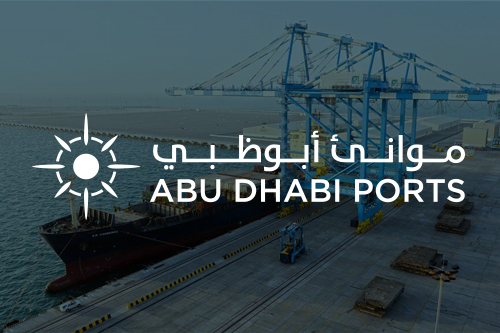Abu Dhabi Ports, master developer, operator and manager of ports and industrial zones in the Emirate of Abu Dhabi, celebrated the halfway mark of Stage I implementation of Maqta Gateway. With the new milestone, Abu Dhabi Ports sees full integration of all electronic messaging for transactions processing among port users. The testing of these message flows will continue with the relevant partners, Abu Dhabi Customs and Abu Dhabi Terminals. Both entities are fully integrated in the development process and will continue to work closely with Abu Dhabi Ports as Maqta Gateway looks to expedite and streamline trade across the Emirate by converting and implementing all port operations through a single point-of-access. Stage I of the Project is expected to be completed by end of this year.
Purpose-built by the trade community for the trade community, Maqta Gateway Project was inaugurated on 16 December 2014 as a state-of-the-art port community system (PCS). Maqta Gateway is designed in line with international standards that will serve the community by interlinking all of the relevant parties involved in Abu Dhabi’s growing import and export trade business. Developed in-house by Abu Dhabi Ports, together with the Centre of Excellence for Research and Technology, the commercial, research and training arm of the Abu Dhabi Higher Colleges of Technology (HCT), and under the advisory of Portic-Idom, PCS experts, Maqta Gateway will offer ports, exporters, importers, shipping lines, customs and government agencies a single point-of-access and real-time information – even via mobile – significantly enhancing processing times and communication procedures.
Stage I, currently ongoing, looks to serve shipping lines and shipping agents, with focus on containerised traffic. To ensure Maqta Gateway is successful and represents the needs of its users, Abu Dhabi Ports works in close collaboration with shipping agents and shipping lines, the current end users, to receive their inputs and validate certain functionalities of the system. Although Stage I is specific to shipping lines and shipping agents, all Maqta Gateway users will benefit from this stage via information services offered: vessel schedules, cargo tracking and other strategic information that will help users set action plans accordingly. The plan is to integrate other user profiles, including clearing agents, and all cargo types in the near future.
“Maqta Gateway offers optimisation, efficiency, automation and transparency, covering the trade process end-to-end. The implementation of a single point-of-access will be highly beneficial for the Abu Dhabi Government, the trade community, and wider society”, said Captain Mohamed Juma Al Shamisi, CEO Abu Dhabi Ports. “We welcome our customers, users and other stakeholders to take part in upcoming workshops and facilitate the development of Maqta Gateway, ensuring a robust port community system that benefits the Emirate of Abu Dhabi and the wider trade community as whole”.
For Abu Dhabi, Maqta Gateway offers better risk management, improved levels of security and increased revenue yields with enhanced trader compliance. Trade communities will benefit from transparent and predictable interpretation and application of rules, better deployment of human and financial resources, decreasing costs and improving customer service, and thereby seeing appreciable gains in productivity and competitiveness. Finally, trade facilitation has a great impact on society – linked to the rest of the world, goods will travel more quickly, efficiently, and will be able to be tracked and traced, thereby ensuring delivery.
